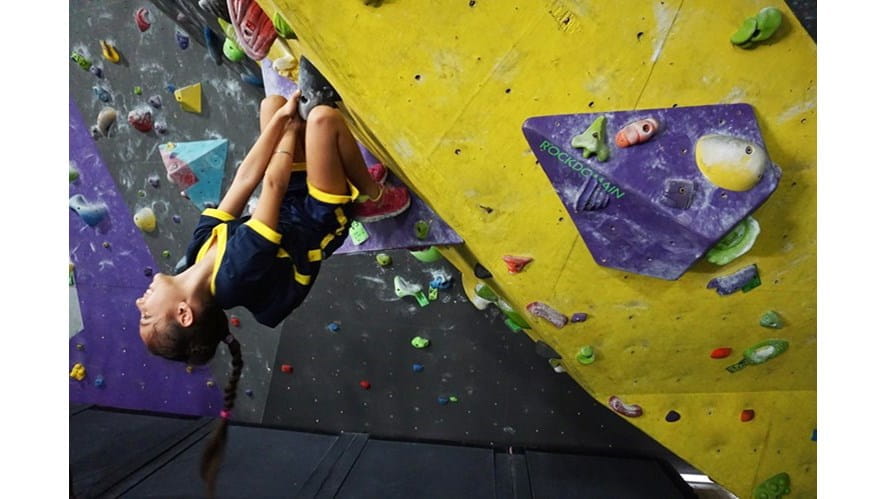Climbing is not only great exercise but helps students to develop resilience and problem solving skills. Find out how learning to climb can benefit your child’s studies.

Climbing is not only great exercise but helps students to develop resilience and problem solving skills. Find out how learning to climb can benefit your child’s studies.
Climbing is not only great exercise but helps students to develop resilience and problem solving skills. Find out how learning to climb can benefit your child’s studies.
The skills children learn through rock climbing and other physical activities can help them to climb their way to success in school and life. These are just some of the transferrable characteristics and skills that students gain from learning to climb:
Responsibility: Children have to learn how to take responsibility for their own safety. They must carefully follow instructions and double check their own equipment before every climb. They learn to consider their own safety and the safety of others in different situations.
Problem solving: Children have to mentally plan a route up the wall and then adjust that plan if they get stuck. This requires quick, flexible, and creative thinking - skills essential for success in today’s rapidly changing global workforce.
Motor skills: There are few other sports that use such a variety of motor skills. Children develop hand and finger strength which helps to improve dexterity and mind-muscle connection. They also gain physical strength in their arms, legs and their core muscles. Other physical benefits include bilateral coordination – where children learn to use both sides of their body together. This helps create neural pathways across the midline of the brain, reinforcing the mind-body connection.
Resilience: Children learn to challenge themselves, set their own personal goals and endure when they are struggling. They realise that they are supported by climbing coaches so it is safe to fall or make mistakes and try again. They also have a group of friends, peers and coaches, cheering them on every step of the way. Resilience, also known as grit, leads to greater success in life than a person’s innate ability alone.
Confidence: When a child succeeds at a challenge they have set for themselves they gain confidence in their ability. They are more likely to take risks in learning in other areas.
Participating in climbing and other physical activities helps children to grow physically, emotionally and socially, developing skills that will support them in school and later on in life. The uncertain conditions they face in experiential learning activities mimic the environment we face in the real world, forcing students to learn how to adapt to different situations.
St. Andrews offers a variety of activities across all Key Stages to engage students physically and mentally: from exploring the new climbing equipment in the Early Years playground, to Year 3's Rock Domain trip, through to next year's adventurous High School expedition to Tanzania!